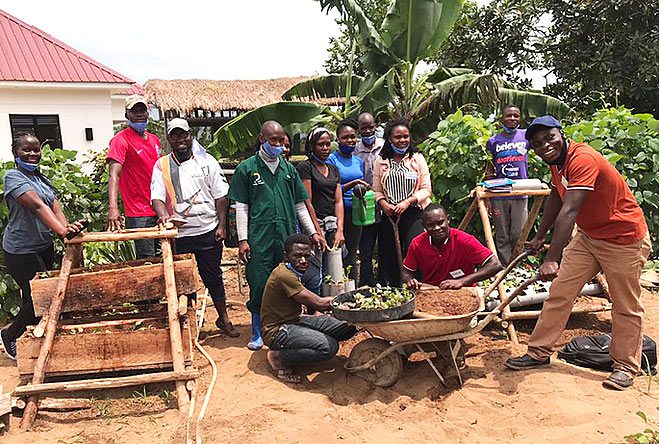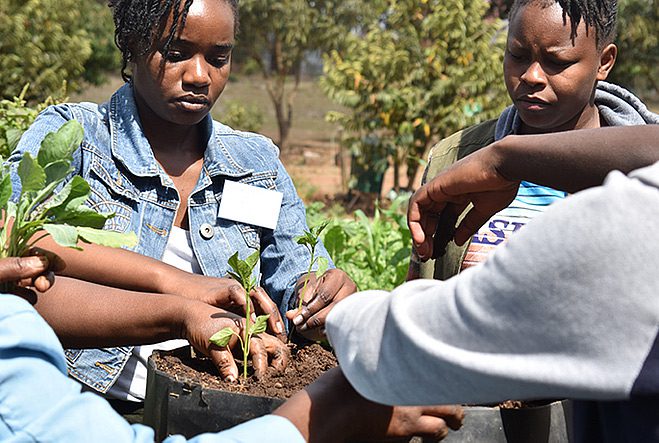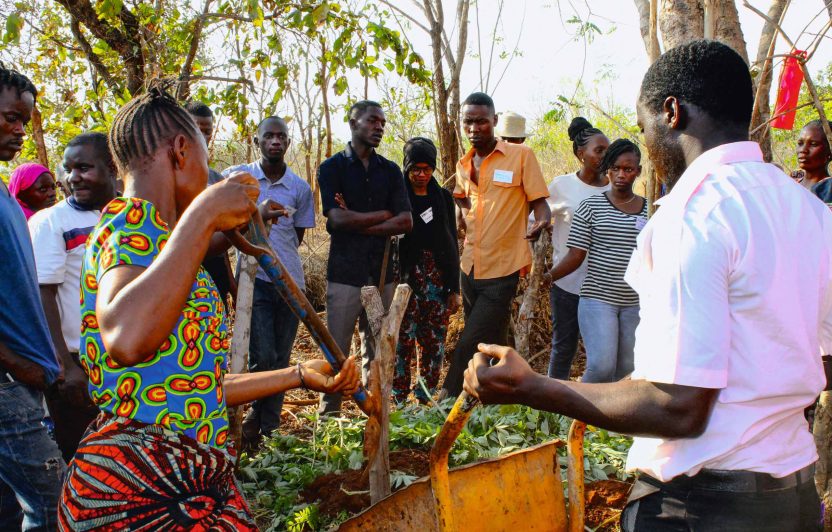
“It is an elated sentiment to recount my fondest gratitude to allowing me the participation in the 15th International Training Course on Organic Agriculture. It availed to me such an interactive, practical learning environment that deepened my understanding of sustainable agriculture. The experience from the training was immensely resourceful, as it excelled in imparting to me a wealth of skills, thrilling my enthusiasm about organic agriculture and creating social capital for me and my colleagues. I was humbled to share in discussions with highly motivated Phd and master students who participated in this year’s program.
Brasio Kawere (24), Student at Makerere University in Kampala and participant of ITCOA 2020 in Uganda, shares his experiences and thoughts on how such training opportunities push the motivation of future change makers and support them to pursue visionary approaches and think beyond the boundaries of our current agricultural system.
Theory and techniques
I joined the training with two colleagues with whom I am piloting a facilitative learning model among organic smallholder coffee and cocoa farmers in Mukono and Kayunga district in Uganda. We are proud of the experiences we carry home from this training! We learnt new skills in management of ecological systems using nature based solutions . We can better implement soil conservation practices such as digging contours, planting grass bands, using plant mulches and legume cover crops as well as agroforestry shade management to minimize run-off and evapotranspiration. We learnt additional techniques to making good compost, establishment of urban vegetable gardens as well as conditioning soils with indigenous microbes and plant teas. We can produce and apply botanical extracts from Citronella, eye bird chilly, neem, papaya and jatropha leaves as well as spray preparations for plant protection. We also learnt about many opportunities for profitable value addition and practiced in making marketgrade jam from pineapples and pawpaws, extracting vegetable oil from avocado, drying of vegetables for an extended shelf life and producing a variety of market grade fruit juices.
Systems thinking
The research engagement with farmers intrigued us about the importance of integrating research tools and feedback loops at mobilizing for better engagement of farmers in knowledge creation and technology adoption processes. This year’s training focus on systems thinking grounded our appreciation of the reason behind opting for a multi-stakeholder approach to successfully implement a participatory community learning model. ITCOA then fine-tuned us with concrete communication and public relation skills and strategies that can suffice the mobilization needed in multi-stakeholder programs. Unique was the opportunity for me to create many relevant networks with fellow participants and facilitators.
ITCOA’s student-focused approach has let us experience alternative, participatory forms of learning: It welcomed our input and yet was never held back by the different levels of participants. The training made of us a family bonded by our desire to contribute to our learning process, flaming the fire of self-worth and accountable leadership in all of the participants.
One most thrilling take home for me above all is the program’s methodology that is richly interactive and achieves relevant social cohesion. As I personally recommit to bridging the knowledge gaps crippling productivity of organic smallholder coffee and cocoa farmers in my region, I’m determined to borrow many excerpts from the ITCOA approach to facilitative learning. The silver lining is that ITCOA has done much in orchestrating within us the needed enthusiasm to proceed with our own projects. I am proud of being an alumnus of this year’s ITCOA!”



